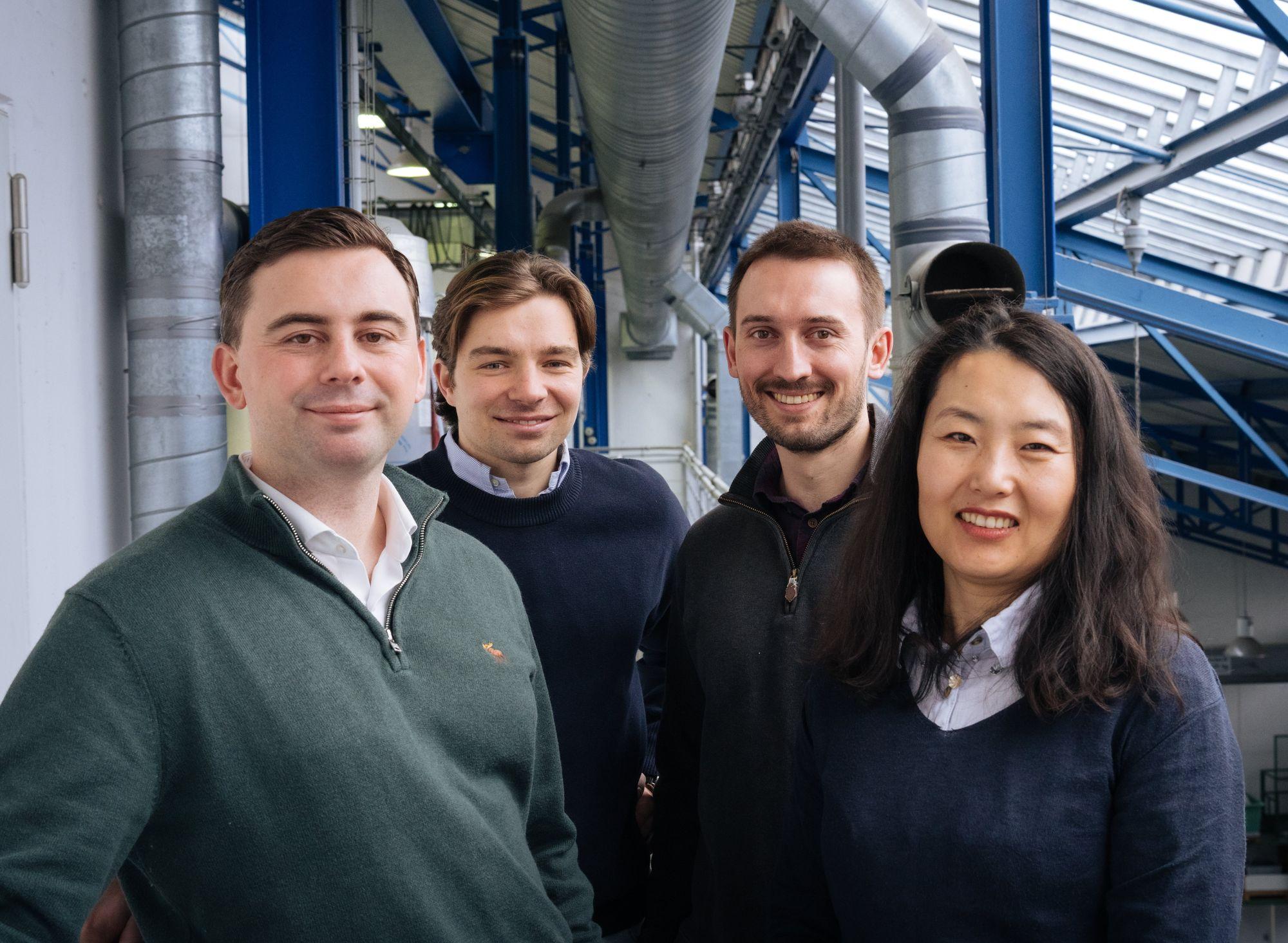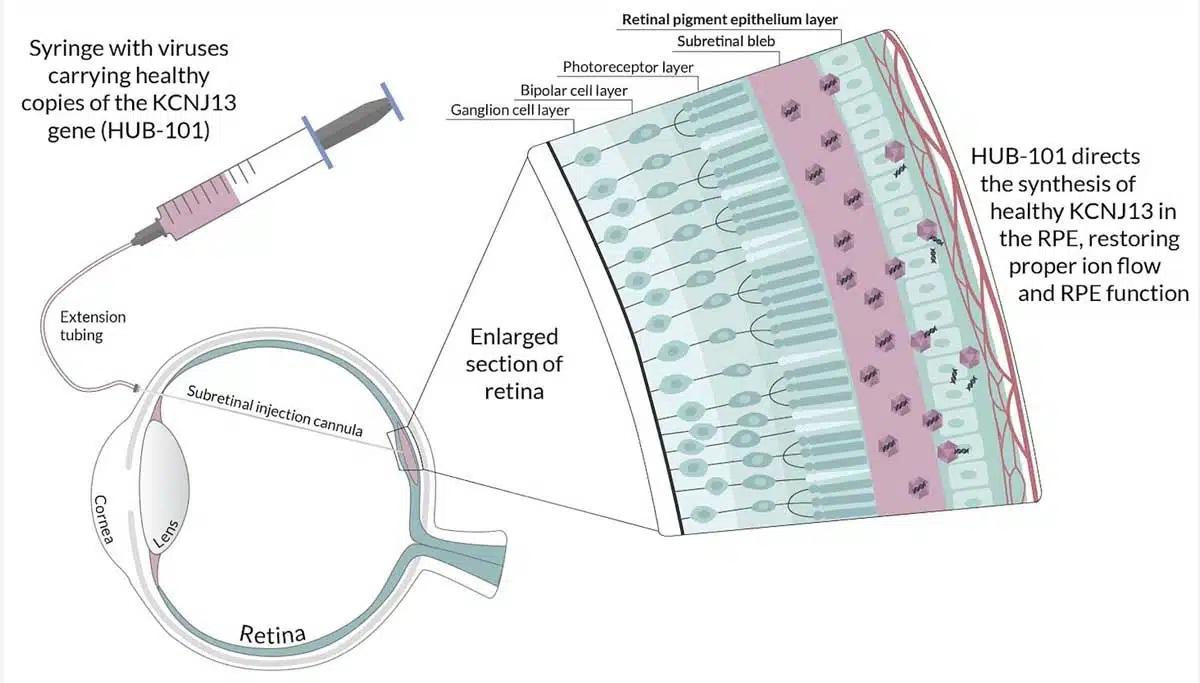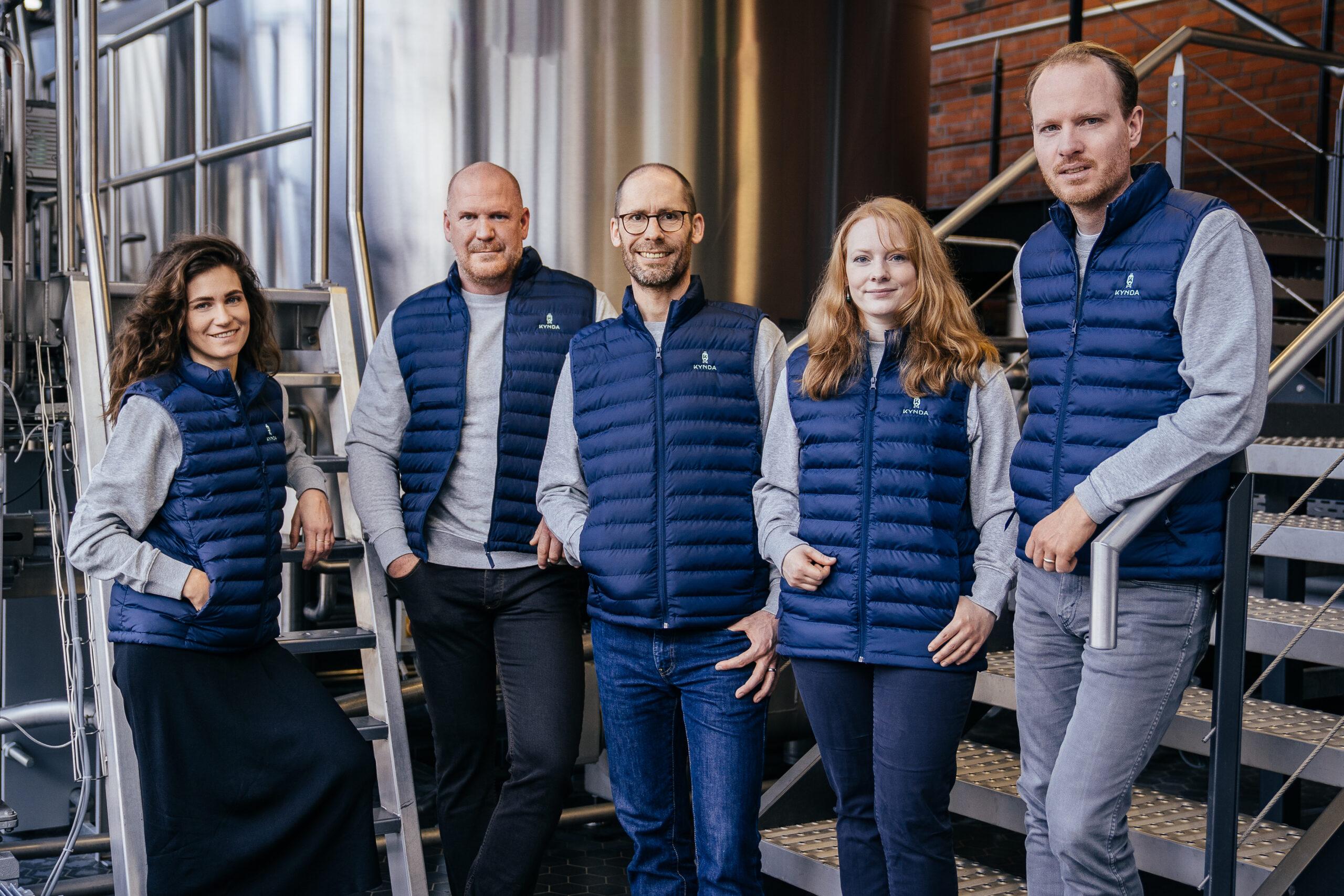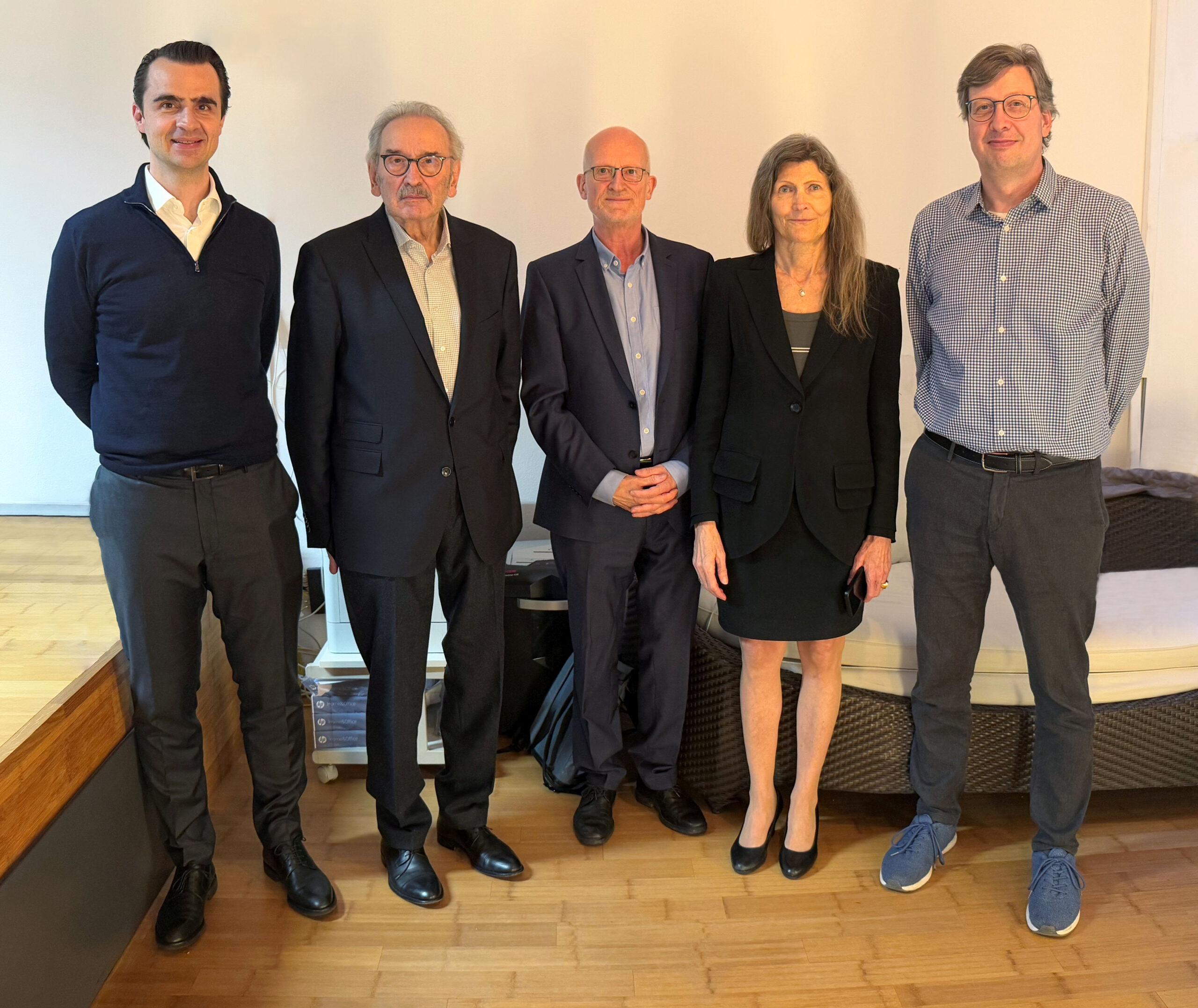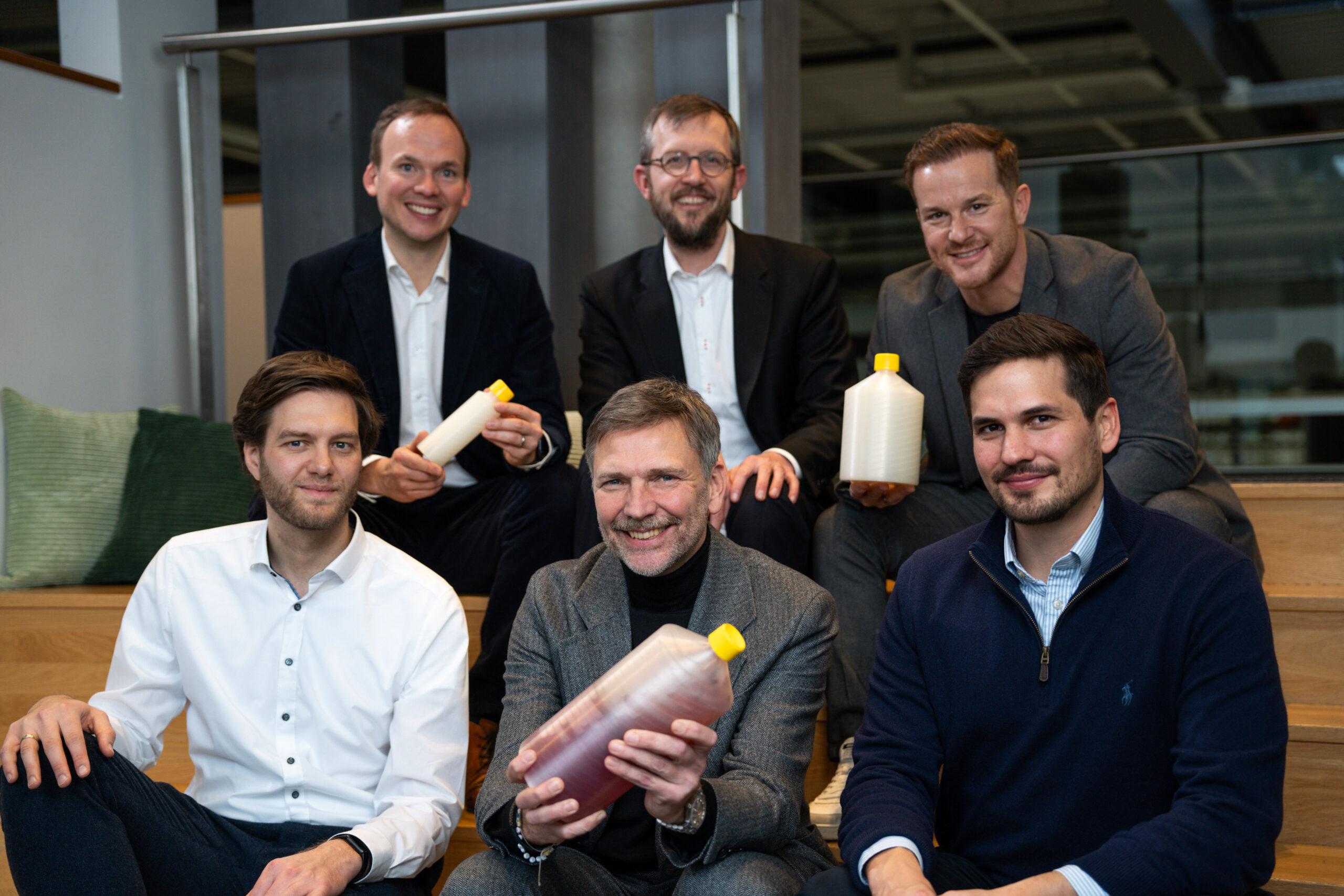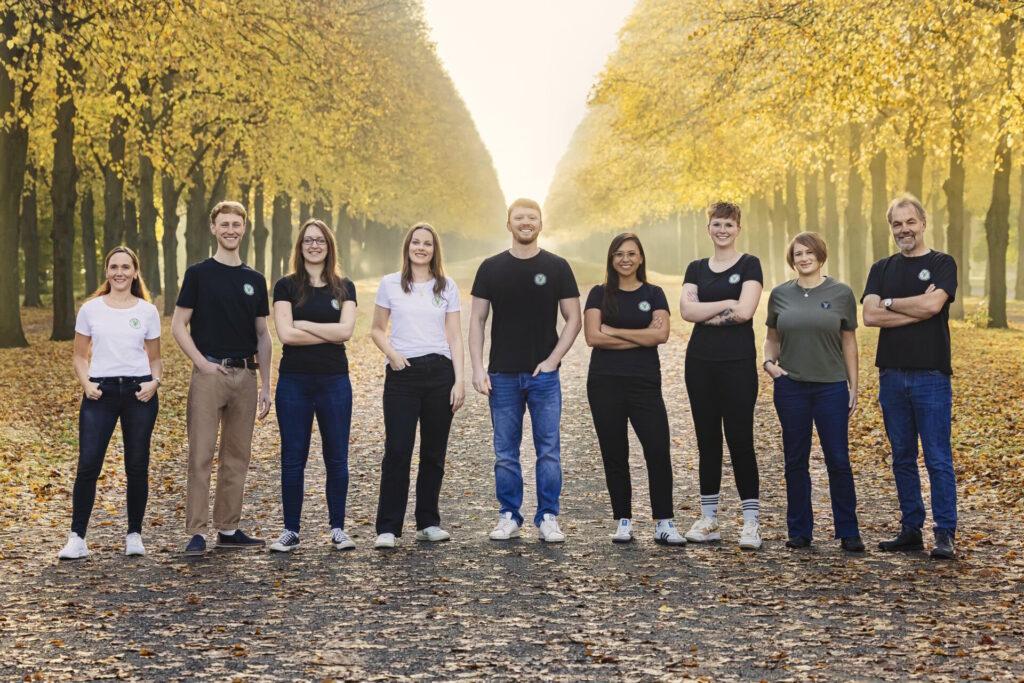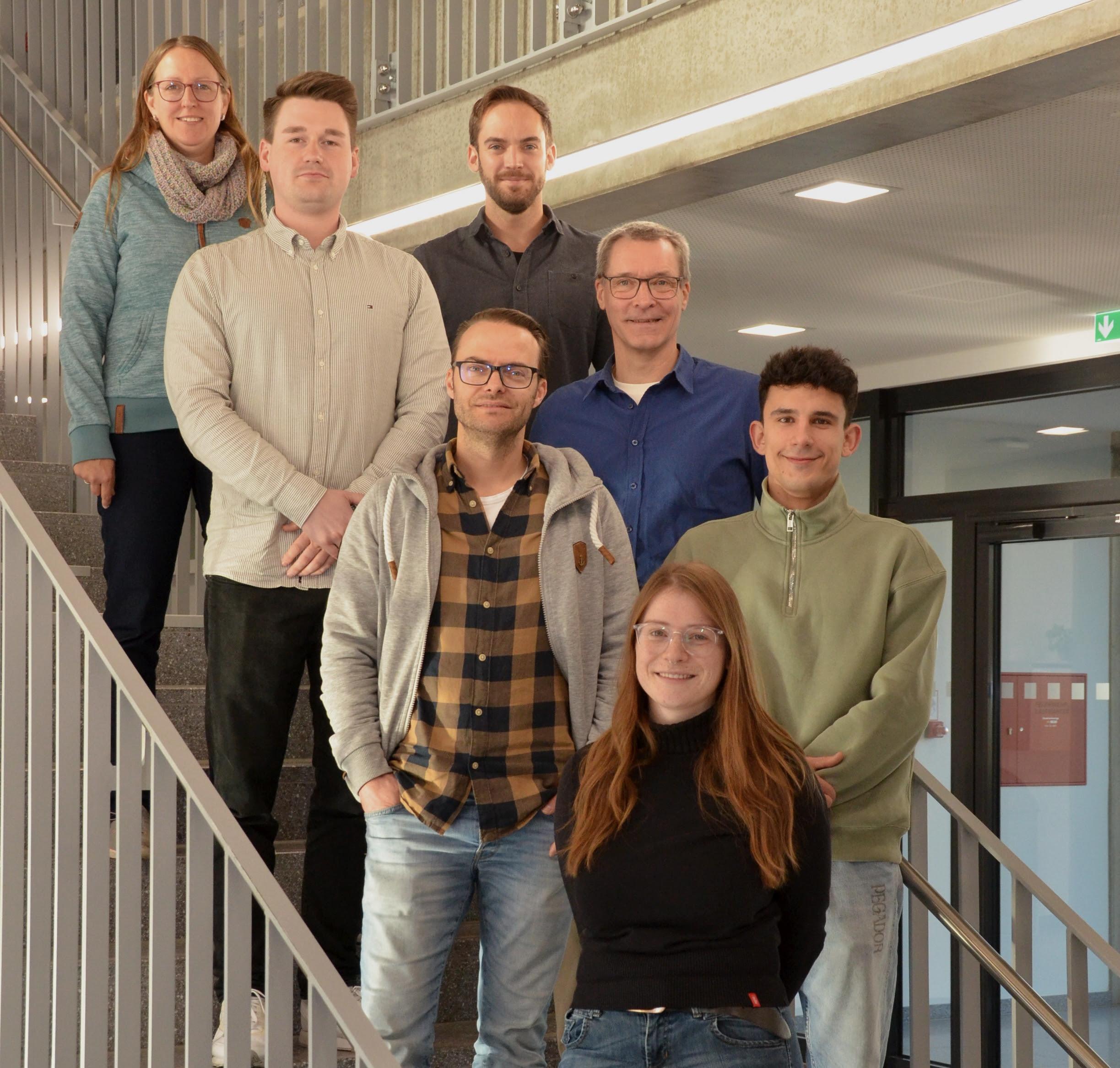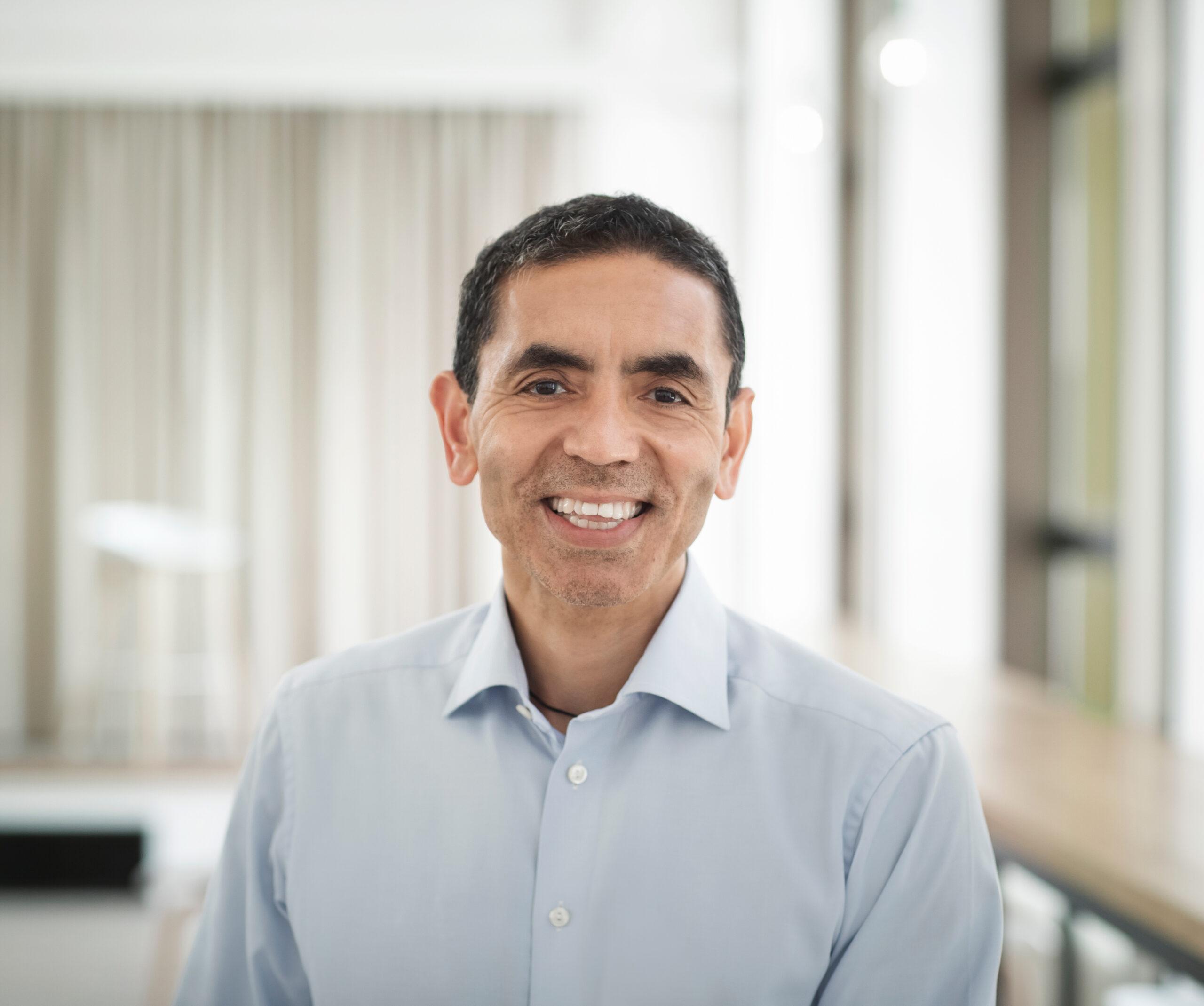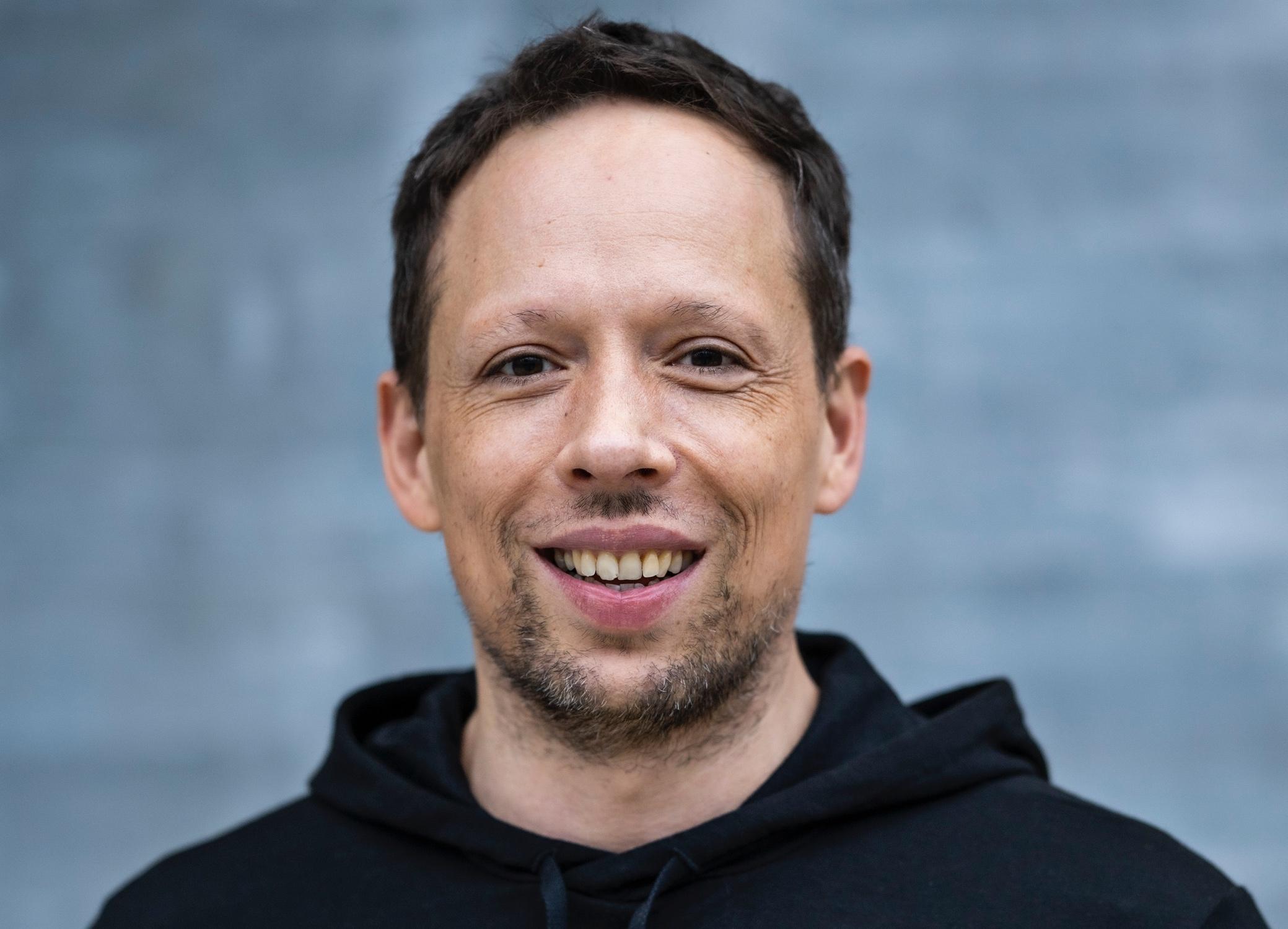Prevention instead of just treating the symptoms
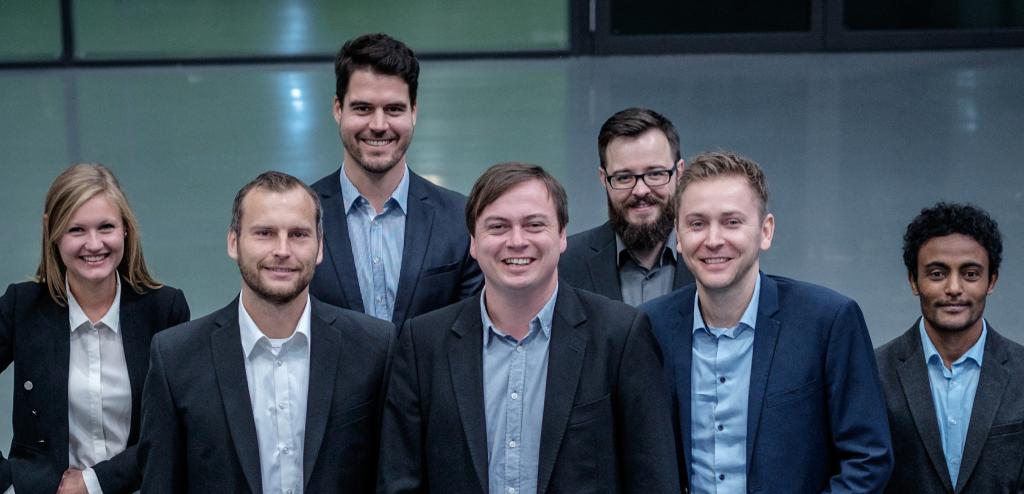
Intestinal flora is a term that many people would prefer never to talk about. Yet it has a massive impact on physical health. The founding team of Biomes wants to change this - and revolutionize the healthcare system at the same time.
Why did you found Biomes?
We founded Biomes so that everyone can finally benefit from the research that goes on in our high-tech laboratories. We wanted to bring something onto the market that would make scientific findings about one's own state of health available and understandable for everyone. That's why we put together an interdisciplinary team of bioinformaticians and microbiologists and developed a technically complex but easy-to-use gut microbiome analysis. Our first product, Intest.pro, helps people with various complaints such as irritable bowel syndrome, obesity or immunodeficiency to investigate their causes. The test also provides health-conscious people with valuable information on how they can get the best out of themselves with the help of diet and lifestyle.
What problem do you want to solve with your idea?
Our long-term goal is to change the healthcare system: We would like to see much more focus on prevention and not just treating symptoms when diseases are already there. Our intestinal flora analysis is just the beginning, because the technology and process we have developed can theoretically be transferred to any DNA application. That is why we are already working on a gut microbiome analysis for dogs, cats and children. We also want to launch a skin flora analysis on the market in the future. But that's not the end of the story! Because bacteria live everywhere on our planet. In the future, we want to use our analyses to help reduce the use of antibiotics in livestock, for example, or to use less fertilizer in agriculture.
Where did the idea for your start-up come from?
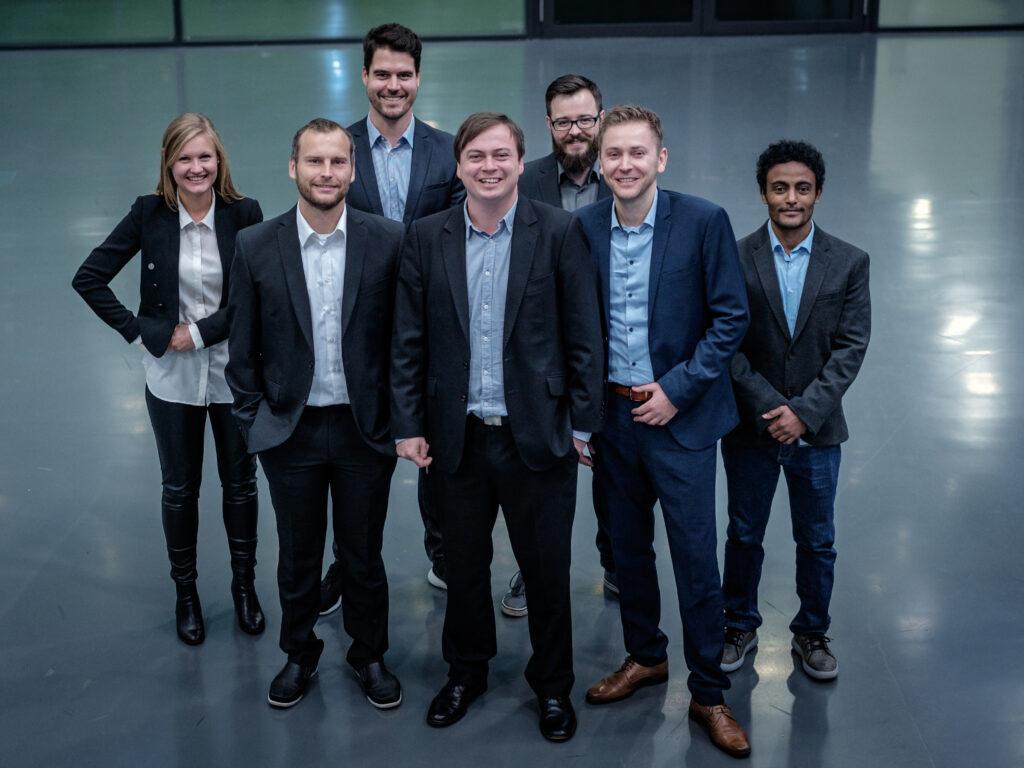
Our founder Paul Hammer is a systems biologist and has always been driven by the desire to explore the world, but at the same time to do something that can help many people. At a conference a few years ago, he learned about the next-generation sequencing method on which our test is based. From then on, it was clear to him that he would continue to pursue this approach. State-of-the-art biotechnology gives us the opportunity to analyze DNA more cheaply and better than ever before, and the possible applications are seemingly unlimited. So it may sound banal that the first thing we decided on was intestinal flora analysis. But it can do so much more than previous analyses - namely record the entirety of all bacteria and thus make life easier for many people. Up to now, the influence of these bacteria on human health has been underestimated. Research in this area is also progressing more and more and we already know a lot about the connections between the diversity of intestinal bacteria and certain diseases.
And how exactly does your product work?
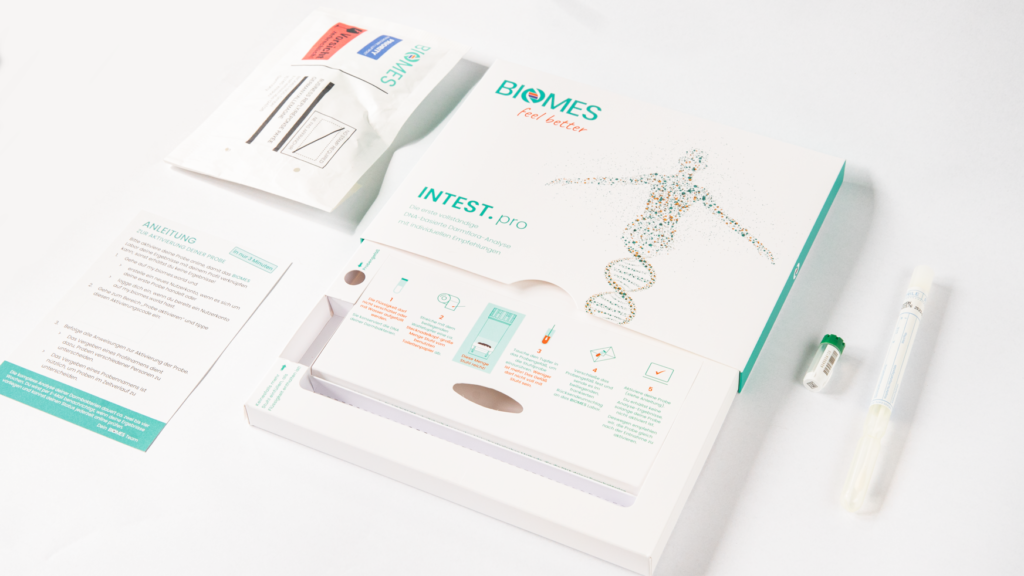
Intest.pro is a DNA-based intestinal flora test that can be carried out at home. Our customers take a small stool sample, place it in a preservative solution and then send the sample tube to our Biomes laboratory. There, our experts use the next-generation sequencing method to examine the DNA and identify over 99.9% of all known bacteria in the gut. A knowledge database, which combines over 8,000 scientific studies on the microbiome, then enables a detailed interpretation of the bacterial findings. The results are personal microbiota profiles, on the basis of which customers receive individual recommendations to improve their quality of life. Among other things, the analysis provides information on the proportion of beneficial and harmful bacteria, inflammation indicators, vitamins and immune system, tendencies towards intolerances, intestinal flora type and calorie utilization.
I now have the test result of the intestinal flora analysis, what happens next?
The test results can be viewed via a clear online dashboard and are presented in an easy-to-understand format. If required, they can be discussed with a naturopath, pharmacist or treating doctor in the form of a PDF. In principle, however, the recommendations for action and the individual nutrition plan from BIOMES also provide sufficiently well-founded recommendations to take your health into your own hands. A key factor here is to deepen your knowledge of the underestimated gut and a gut-friendly diet - anyone can read up on this independently, for example on the BIOMES blog.
Are you planning to have your gut flora test certified as a medical device?
Although our analyses can also identify pathogens and disease patterns, we have so far deliberately decided against obtaining approval as a medical device. There are several reasons for this. In the lifestyle segment, we are much better able to fulfill our actual mission - namely to provide people with tools and solutions that they can use to monitor their own health in order to prevent them from becoming ill in the first place. In addition, regulatory diagnostic approvals are only ever possible for a specific disease, but our DNA analyses, as a so-called "untargeted approach", do not require any prior assumptions about a specific disease or infection. Theoretically, we would therefore have to seek a separate approval for each individual disease, which would make no economic sense.
Is your intestinal flora analysis covered by statutory health insurance?
In our experience, German health insurance companies generally find it difficult to accept new technologies without medical device approval. In addition, their focus is almost exclusively on the treatment of illnesses and not on health or prevention. Nonetheless, we are in discussions with a large Swiss health insurance company and several German private health insurers about how our analyses and solutions can help their members to live healthy lives and prevent illnesses. We are confident that here, too, stakeholders will continue to shift their thinking towards prevention. Independently of the local healthcare industry, we are seeing increasing investment in health-promoting technologies from large tech companies in the USA and Asia, e.g. in wearables (Google FitBit, Apple Watch) or individual biomarkers (e.g. microbiome). We assume that these global market players will drive a transformation of today's "disease" system into a genuine healthcare system, a digitalization of healthcare, so to speak. BIOMES not only wants to accompany this system change, but also actively shape it with its own technologies and solutions.
From the idea to the launch: how have you financed yourself so far?
Financing a start-up is of course always a challenge, but so far we have had a good knack for finding the right supporters. We are currently financed by several business angels and two VC investors, who are above all strong partners and highly valued advisors for us. Nevertheless, we have a capital-intensive business and will have to carry out further financing rounds. For example, we want to carry out our Series A next spring. In addition to financing, it is always a challenge for us to stay focused. Due to the countless possible applications of our genomics technology platform, we also address the most diverse problems in a wide range of industries (e.g. diagnostics, pharmaceuticals, food and agriculture). We therefore had to learn to say "no" to promising requests from large corporates in order not to lose focus with our limited resources.
As a biotech, you also provided a lot of support during the coronavirus pandemic. What exactly did you do?
To support the state of Brandenburg in the fight against the coronavirus pandemic, we have been carrying out qPCR analyses of throat swabs to detect coronavirus since August 2020 and genome sequencing of positive coronavirus samples to identify virus mutants since February 2021. For this purpose, we have adapted our laboratory processes, which are actually geared towards intestinal flora analysis, and invested heavily in the necessary technology. Since March of this year, we have been able to focus on our core microbiome business again.
Where do you see your start-up in five years' time?
Our medium-term goal is to break down prejudices against DNA analysis and convince doctors and the general public of the important insights we can gain thanks to tests like ours. Taking a more long-term view, we want to become the top dog in the field of genomics and thus people's lifelong companion in dealing with their genes.
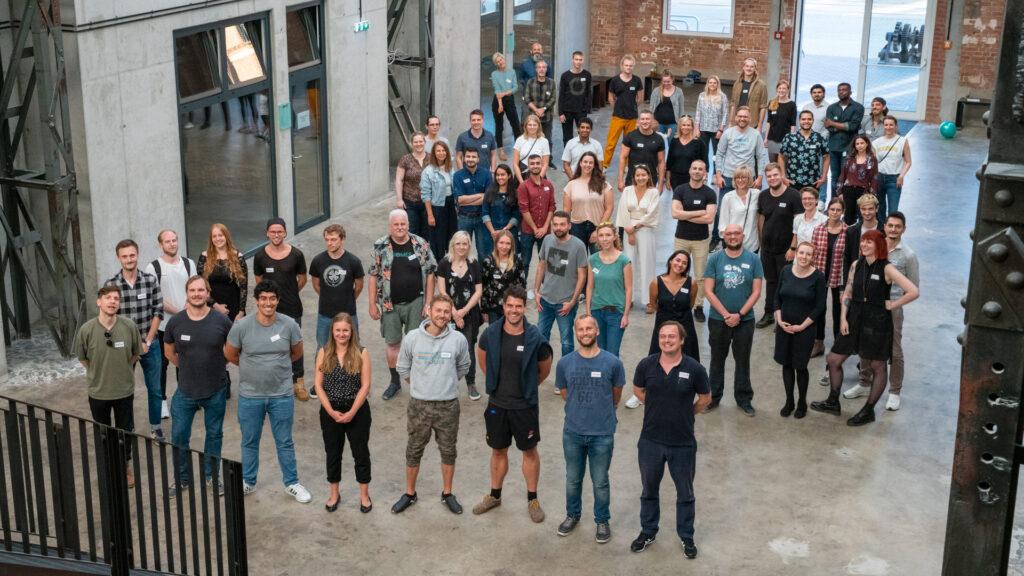
What has been your biggest challenge so far?
We can only advise other founders: always be prepared to raise money at short notice. We recently went through a difficult financial phase ourselves when we suddenly had to expand our business model to include clinical corona diagnostics in a very short space of time due to corona. To do this, we scaled back our actual core business, microbiome analysis. Due to the high costs and the lack of planned sales, we had to raise fresh capital within three months. As the founder of a start-up, you have to keep a cool head even in such a tense situation and be prepared to look for and find new solutions spontaneously.
What tips would you give other founders?
It is advisable to conduct a pitch, for example with potential investors, as a dialog and also to ask the investors important questions, such as how they understand their role "beyond money" in an investment in your startup. Once you have found the right investors, they are much more than just financial backers, they can provide you with their network, for example, and you can rely on them, even in difficult situations.
Thank you for the interview.
Personal details: Paul Hammer is the founder and CEO of the biotechnology company Biomes. He received his doctorate in systems biology and bioinformatics from the Faculty of Natural Sciences at the University of Potsdam in 2012. His great passion is researching genomic and microbial mechanisms and their effects on life. In 2017, Paul Hammer founded Biomes NGS GmbH with six other scientists. The biotechnology company analyzes the DNA of microbes that live in and on the human body using the so-called Next Generation Sequencing method.

Newsletter
Startups, stories and stats from the German startup ecosystem straight to your inbox. Subscribe with 2 clicks. Noice.
LinkedIn ConnectFYI: English edition available
Hello my friend, have you been stranded on the German edition of Startbase? At least your browser tells us, that you do not speak German - so maybe you would like to switch to the English edition instead?
FYI: Deutsche Edition verfügbar
Hallo mein Freund, du befindest dich auf der Englischen Edition der Startbase und laut deinem Browser sprichst du eigentlich auch Deutsch. Magst du die Sprache wechseln?

